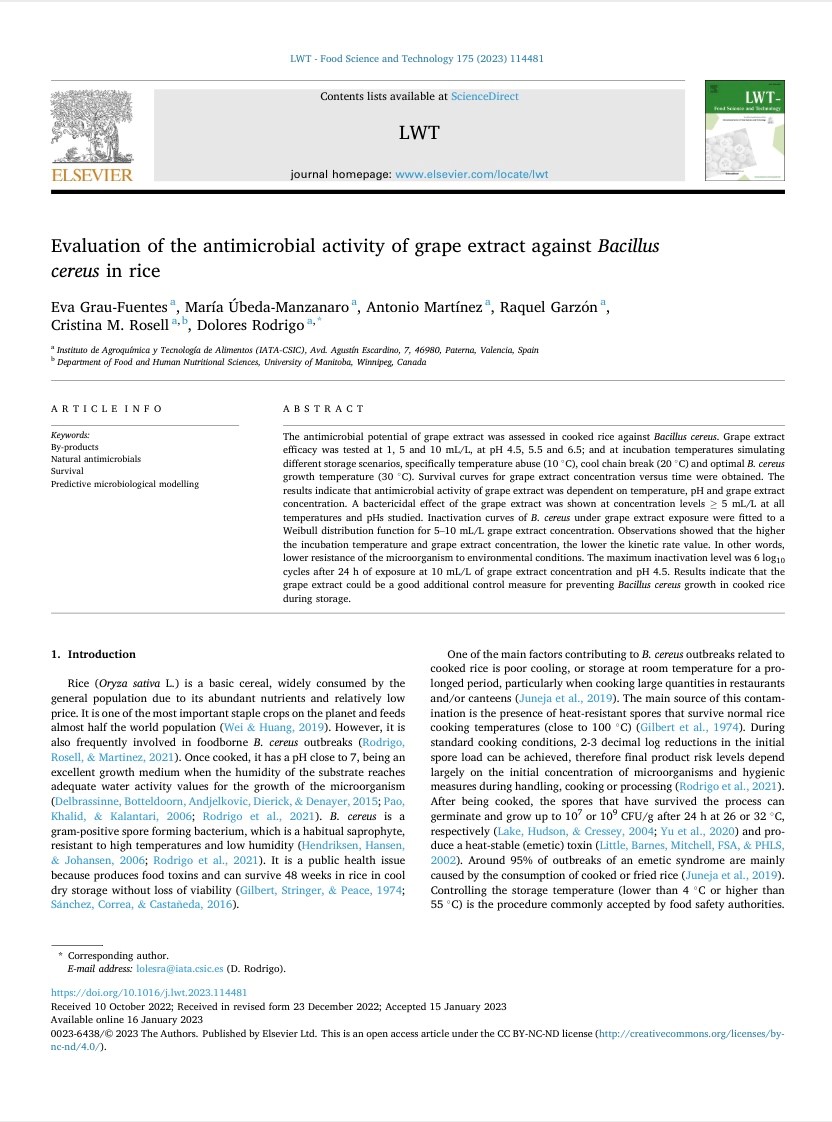New article on antimicrobial activity
IATA-CSIC has published an article related to our TRACE-RICE project, with the title "Evaluation of the antimicrobial activity of grape extract against Bacillus cereus in rice".
The antimicrobial potential of grape extract was assessed in cooked rice against Bacillus cereus. Grape extract efficacy was tested at 1, 5 and 10 mL/L, at pH 4.5, 5.5 and 6.5; and at incubation temperatures simulating different storage scenarios, specifically temperature abuse (10 °C), cool chain break (20 °C) and optimal B. cereus growth temperature (30 °C). Survival curves for grape extract concentration versus time were obtained. The results indicate that antimicrobial activity of grape extract was dependent on temperature, pH and grape extract concentration. A bactericidal effect of the grape extract was shown at concentration levels ≥ 5 mL/L at all temperatures and pHs studied. Inactivation curves of B. cereus under grape extract exposure were fitted to a Weibull distribution function for 5–10 mL/L grape extract concentration. Observations showed that the higher the incubation temperature and grape extract concentration, the lower the kinetic rate value. In other words, lower resistance of the microorganism to environmental conditions. The maximum inactivation level was 6 log10 cycles after 24 h of exposure at 10 mL/L of grape extract concentration and pH 4.5. Results indicate that the grape extract could be a good additional control measure for preventing Bacillus cereus growth in cooked rice during storage.


